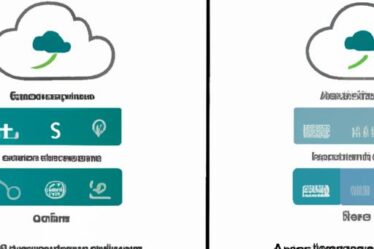
Introduction
In the dynamic realm of the oil and gas industry, the integration of Enterprise Resource Planning (ERP) systems has emerged as a pivotal tool for companies looking to streamline their operations and enhance overall efficiency. ERP solutions offer a comprehensive approach to managing various aspects of a business, from financials to human resources and supply chain management.
As the oil and gas sector grapples with complex challenges such as fluctuating oil prices, stringent regulatory requirements, and increasing competition, the need for efficient and integrated systems like ERP has become more pronounced. By centralizing and optimizing critical processes, ERP systems empower organizations to make informed decisions, improve productivity, and drive sustainable growth in a highly competitive landscape.
Stay tuned as we delve deeper into the benefits, key features, and successful implementation strategies of ERP systems tailored specifically for the oil and gas industry. Let’s explore how ERP solutions are revolutionizing the way companies operate and navigate the complexities of this ever-evolving sector.
Key Features of ERP Systems for Oil and Gas Companies
Asset Management and Maintenance Tracking
In the oil and gas industry, where assets play a crucial role in operations, effective asset management is essential for ensuring optimal performance and longevity. ERP systems provide comprehensive tools for tracking and managing assets, from drilling equipment to pipelines and refineries. By centralizing asset data, companies can monitor maintenance schedules, track performance metrics, and identify potential issues before they escalate, ultimately minimizing downtime and maximizing operational efficiency.
Inventory Management and Supply Chain Optimization
Efficient inventory management and streamlined supply chain processes are vital for oil and gas companies to meet production demands and respond swiftly to market fluctuations. ERP systems offer robust inventory management features that enable companies to track inventory levels, optimize procurement processes, and maintain accurate records of stock movements. By integrating supply chain management within the ERP framework, organizations can enhance visibility, reduce costs, and improve overall operational efficiency.
Compliance with Industry Regulations and Standards
Navigating the intricate web of regulatory requirements and industry standards is a critical aspect of operating in the oil and gas sector. ERP systems come equipped with compliance management tools that help companies stay abreast of evolving regulations, ensure adherence to safety protocols, and maintain audit trails for regulatory reporting. By automating compliance processes and enforcing best practices, ERP systems enable oil and gas companies to mitigate risks, uphold regulatory compliance, and safeguard their operations.
Implementation of ERP in Oil and Gas Companies
Challenges for Successful Implementation
Implementing an ERP system in oil and gas companies comes with its own set of challenges. One of the primary obstacles is the complexity and scale of operations within the industry. The integration of ERP systems requires a deep understanding of the unique processes and workflows specific to oil and gas companies. Additionally, ensuring data accuracy and security during the transition phase is crucial to prevent disruptions in day-to-day operations.
Considerations for Success
To navigate these challenges effectively, oil and gas companies must carefully consider several key factors. It is essential to conduct a thorough analysis of existing processes and systems to identify areas that can benefit from ERP integration. Engaging stakeholders at all levels of the organization and providing comprehensive training and support are vital for successful implementation. Furthermore, companies should align their ERP strategy with long-term business goals to ensure that the system meets their evolving needs and drives sustainable growth.
Best Practices for Integration
Implementing ERP systems across departments requires a strategic approach to ensure seamless integration and maximum efficiency. Companies should establish clear communication channels between different teams and departments to facilitate collaboration and data sharing. Regular monitoring and evaluation of the ERP system’s performance are essential to identify areas for improvement and optimization. By following best practices and addressing challenges proactively, oil and gas companies can unlock the full potential of ERP systems and drive operational excellence in a highly competitive industry.
Case Studies of Successful ERP Implementation in Oil and Gas Companies
Driving Operational Excellence: Company A’s Success Story
In the competitive landscape of the oil and gas industry, Company A embarked on a journey to enhance operational efficiency and drive sustainable growth through the implementation of an ERP system. By integrating project management, resource allocation, and financial processes into a unified platform, Company A witnessed a significant transformation in its operational capabilities. Improved project management enabled better resource allocation, leading to optimized workflows and streamlined operations across various departments.
Maximizing Profitability: Company B’s Strategic Approach
Company B, a prominent player in the oil and gas sector, leveraged ERP technology to enhance data visibility and facilitate informed decision-making. By consolidating financial and operational processes within a centralized system, Company B gained real-time insights into key performance indicators, allowing for proactive decision-making and strategic planning. This data-driven approach not only improved operational efficiency but also optimized resource utilization, ultimately driving profitability and sustainable growth for the organization.
Conclusion
In conclusion, the integration of Enterprise Resource Planning (ERP) systems in the oil and gas industry proves to be a game-changer for companies seeking to optimize their operations and drive efficiency. From improved project management and resource allocation to enhanced data visibility and seamless integration of financial and operational processes, ERP solutions offer a holistic approach to addressing the unique challenges faced by oil and gas companies.
As organizations strive to navigate the complexities of the oil and gas sector and stay ahead of the competition, leveraging ERP systems has become imperative for sustainable growth and success. By embracing ERP technology and adopting best practices in implementation, companies can unlock new levels of efficiency, productivity, and strategic decision-making.
With the transformative power of ERP solutions, oil and gas companies can revolutionize their operations, enhance collaboration across departments, and achieve greater agility in responding to market demands. Embrace the future of streamlined operations with ERP and propel your organization towards a more competitive and profitable future in the oil and gas industry.


